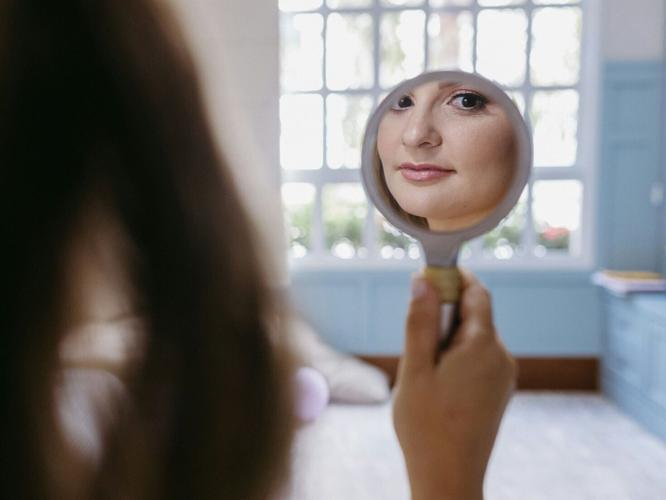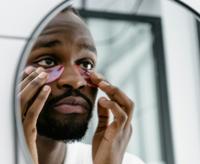
Jonathan Borba
Two in five Americans say hair loss is the physical change they fear most when it comes to aging.
A new survey of 2,000 adults explored how people feel about their appearance and aging.
Of those who have noticed signs of aging, 42% reported experiencing a significant drop in self-esteem due to hair loss.
The survey also found that wrinkles, along with hair loss, were tied (39%) as the top fears about growing older, and that this fear of hair loss is more prominent in younger generations.
Nearly half of Gen Z respondents (47%) stated hair loss as a top fear of aging, above wrinkles or weight gain.

In fact, the survey conducted by Talker Research on behalf of Doctor’s Best also found that hair loss was the top age-related issue that respondents experienced across all generations.
That drop in confidence doesn’t stop at the mirror; it spills over into other areas of life.
Fifty-one percent of respondents said hair loss has negatively impacted their dating life, while 35% reported it’s made them less confident in social settings and even at work (27%).
Interestingly, while hair loss is often considered a “men’s issue,” the emotional fallout appears to be especially profound for women.
Half of women who’ve experienced hair loss (51%) said they’ve hidden thinning hair out of embarrassment.
The study shows that supplements are a popular option. Sixty-eight percent (68%) of people experiencing hair loss have already turned to or are considering turning to supplements.
It’s clear the emotional weight of hair loss is significant, too.
Three in four adults (75%) said it would be emotionally difficult to lose their hair completely, with women more likely than men to feel this way (82% vs. 66%).
The survey also found that hair is a major part of personal identity for many Americans.
Two-thirds of adults (67%) consider their hair key to how they see themselves. Among younger generations, that figure increases, with nearly 80% of Gen Z and Millennials considering hair an essential part of their identity.
"Hair loss is more than just a cosmetic concern; it affects confidence, relationships, and sense of self,” said Katie Lucas, CMO for Doctor’s Best. “Our research shows that nearly half of adults experience a real emotional impact when their hair thins, with women in particular feeling pressured to hide hair changes. Understanding and addressing these experiences is essential to supporting overall well-being for consumers seeking hair growth support."
Hair loss was also found to influence dating and social perceptions in nuanced ways.
For men, most respondents preferred a shaved head over visible balding (62% vs. 38%). Baldness in men was perceived as an appealing or neutral attribute, according to 82% of respondents. But perceptions of baldness in women were more critical. Nearly half (49%) described baldness in women as somewhat or very unappealing.
But there are some positive outcomes from the data, with respondents willing to try new treatments for hair loss if their current approach isn’t working. Medication, supplements, and over-the-counter treatments all came in as the top-selected options as next steps in their hair regrowth.
"The study demonstrates that consumers want non-invasive options that not only promote hair growth, but also reinforce their confidence,” said Gale Bensussen, CEO of Doctor’s Best. “We aim to provide science-based, accessible solutions which enable consumers to embrace aging while fortifying their health and the physical attributes that so closely align with their self-identity.”

(Photo by Tima Miroshnichenko via Pexels)
Survey methodology:
Talker Research surveyed 2,000 Americans with an even gender split; the survey was commissioned by Doctor’s Best and administered and conducted online by Talker Research between Aug. 25 - Aug. 29, 2025.
We are sourcing from a non-probability frame and the two main sources we use are:
- Traditional online access panels — where respondents opt-in to take part in online market research for an incentive
- Programmatic — where respondents are online and are given the option to take part in a survey to receive a virtual incentive usually related to the online activity they are engaging in
Those who did not fit the specified sample were terminated from the survey. As the survey is fielded, dynamic online sampling is used, adjusting targeting to achieve the quotas specified as part of the sampling plan.
Regardless of which sources a respondent came from, they were directed to an Online Survey, where the survey was conducted in English; a link to the questionnaire can be shared upon request. Respondents were awarded points for completing the survey. These points have a small cash-equivalent monetary value.
Cells are only reported on for analysis if they have a minimum of 80 respondents, and statistical significance is calculated at the 95% level. Data is not weighted, but quotas and other parameters are put in place to reach the desired sample.
Interviews are excluded from the final analysis if they failed quality-checking measures. This includes:
- Speeders: Respondents who complete the survey in a time that is quicker than one-third of the median length of interview are disqualified as speeders
- Open ends: All verbatim responses (full open-ended questions as well as other please specify options) are checked for inappropriate or irrelevant text
- Bots: Captcha is enabled on surveys, which allows the research team to identify and disqualify bots
- Duplicates: Survey software has “deduping” based on digital fingerprinting, which ensures nobody is allowed to take the survey more than once
It is worth noting that this survey was only available to individuals with internet access, and the results may not be generalizable to those without internet access.






















(0) comments
Welcome to the discussion.
Log In
Keep it Clean. Please avoid obscene, vulgar, lewd, racist or sexually-oriented language.
PLEASE TURN OFF YOUR CAPS LOCK.
Don't Threaten. Threats of harming another person will not be tolerated.
Be Truthful. Don't knowingly lie about anyone or anything.
Be Nice. No racism, sexism or any sort of -ism that is degrading to another person.
Be Proactive. Use the 'Report' link on each comment to let us know of abusive posts.
Share with Us. We'd love to hear eyewitness accounts, the history behind an article.